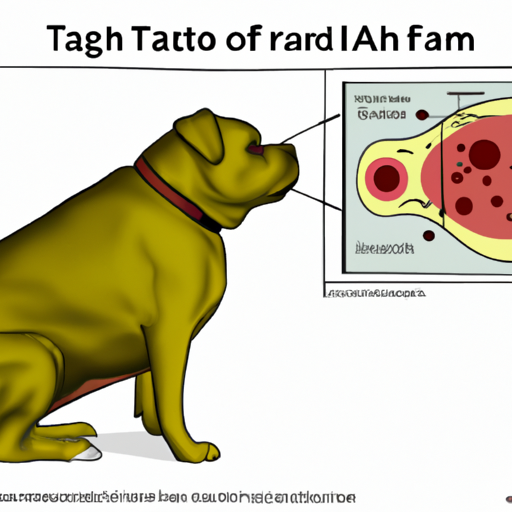Introduction
You may have noticed a strange lump or bump on your beloved pet and wondered, “What could this be?” While it’s important not to jump to conclusions immediately, what you’re observing could potentially be a fatty tumor.
What are Fatty Tumors?
Fatty tumors, also known as lipomas, are quite common in dogs. These are benign growths made up of fat cells that typically appear in middle-aged or older dogs. While they may seem alarming at first glance, don’t let them panic you. They’re generally not harmful and rarely become cancerous.
Recognizing a Fatty Tumor
So, how can you, as a diligent pet parent, recognize a fatty tumor? Here are some key characteristics to look out for:
- Size: They can vary in size, from as small as a pea to as large as a grapefruit.
- Shape: They are usually round or oval and feel soft to touch.
- Location: They are typically found under the skin, especially on the chest, abdomen, and legs.
| Characteristics | Fatty Tumors |
|---|---|
| Size | Varies |
| Shape | Round or oval |
| Touch | Soft |
| Location | Under the skin |
Managing Fatty Tumors
While fatty tumors are typically benign, it’s critical to monitor them closely. Here’s how you can manage them:
- Regular Vet Checkups: Schedule regular vet visits to keep track of the tumor’s size and growth.
- Surgery: If the tumor becomes too large or obstructs your dog’s movement, your vet might recommend surgical removal.
- Healthy Diet: Maintain a balanced and healthy diet for your dog to prevent obesity which can lead to an increased risk of fatty tumors.
Are Fatty Tumors Preventable?
Unfortunately, there’s no surefire way to prevent fatty tumors. However, maintaining a healthy lifestyle for your dog could potentially reduce the risk. Regular physical activity and a balanced diet are key. Monitor your dog’s weight and avoid overfeeding.
FAQs
What causes fatty tumors in dogs?
The exact cause is unknown, but it’s believed that genetics and obesity play a role.
Are fatty tumors in dogs painful?
Generally, they are not painful unless they press against nerves or restrict movement.
Can fatty tumors disappear on their own?
Rarely. Most of the time, they either stay the same size or grow slowly.
Should all fatty tumors be removed?
No, only if they are causing discomfort or restricting movement.
Are certain breeds more prone to fatty tumors?
Yes, breeds like Labrador Retrievers, Doberman Pinschers, and Miniature Schnauzers have a higher tendency to develop fatty tumors.
Remember, while information is power, always consult with a professional vet when it comes to your pet’s health.



